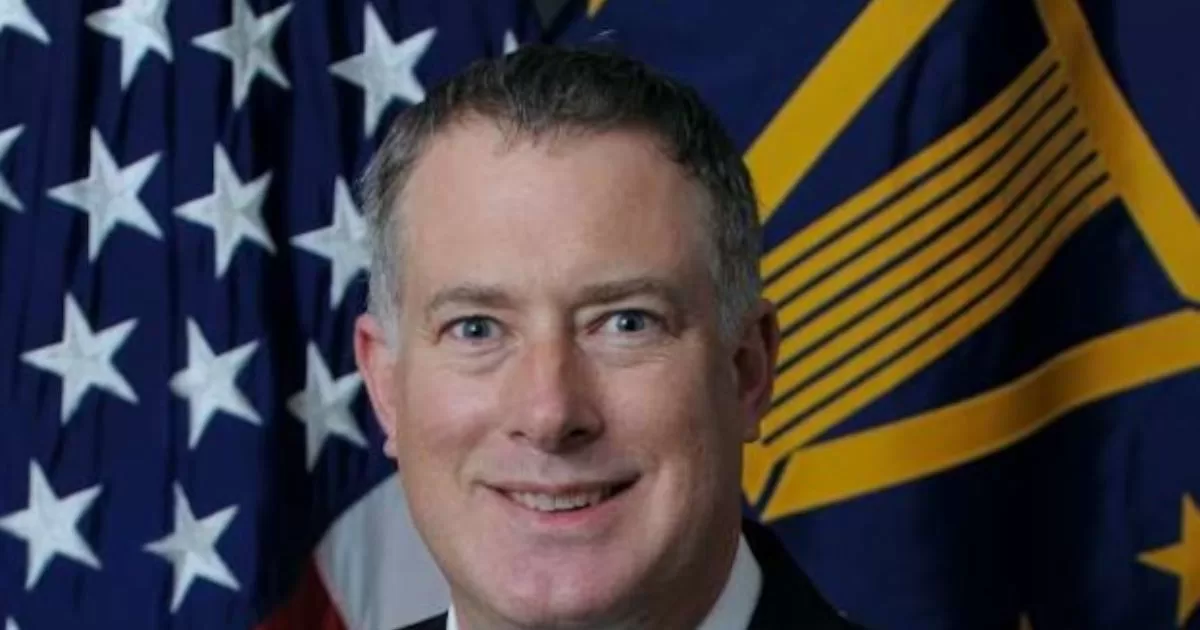Erikson, as the White House’s main security advisor, will be responsible for guiding the government on issues of hemispheric interest in Latin America, such as democracies in check due to authoritarianism, governance problems, growing organized crime, drug trafficking and corruption, as well as such as the slowdown of economies, which represents a challenge for the stability of the region.
Also Venezuela, with 10 years under the authoritarian regime of Nicolás Maduro in power, will be among the priority issues on its agenda.
The political conflicts between Maduro and the democratic opposition, the lack of electoral guarantees, and the serious violations of human rights are still pending issues that González was unable to resolve during his administration, since January 2021.
The resignation of this advisor, of Colombian origin, confirmed by the White House on February 13 amid new attacks by Maduro against opponents, highlights the failure of the Barbados agreements signed by the regime and the opposition, in which González participated on behalf of the United States and that caused a crisis with the judicial ratification of the illegal disqualification of the opposition presidential candidate María Corina Machado.
Blanco does not doubt that Erikson will move “in the same paradigm” of the renunciant, and that is why he does not foresee that the changes that are demanded will be promoted, at least in the country.
Who is Daniel Erikson?
One of the reasons that the political analyst gives for envisioning “continuity” in US Security is the political origin of the new advisor and the approach towards policies favorable to Cuba.
The advisor, who has been collaborating with Biden for more than a decade and has remained in the White House since 2021, studied International Relations at Brown University and specialized in public policy at the Harvard Kennedy School of Government. Additionally, he was a Fulbright scholar in Mexico
“Erikson is a product of the left in the liberal universities of the United States and he was linked from an early age with people in favor of changing policies towards Cuba,” Blanco said.
He mentioned two of Erikson’s three books, The Cuba Wars, a compilation of texts that cover various areas of Cuban culture; and Transforming Socialist Economies, written in 2004 and 2010, in which the current undersecretary shows his approach to Cuba. “In that last year he was more involved with Biden during Barak Obama’s administration,” he said.
USA: Diplomacy more than sanctions?
Blanco questioned whether the new advisor puts diplomacy above the sanctions that have been used to pressure him to cause political change in Venezuela.
Erikson, with more than 20 years in US foreign policy and national security work, said this in 2019, in his capacity as advisor to then-candidate Biden, in the midst of the US electoral campaign and the political crisis in Venezuela, after the questioned presidential election, as unconstitutional, of Nicolás Maduro, in 2018.
“Economic pressure, although very important, will not be enough to cause a change in Venezuela,” Erikson said in a journalistic interview. He also said he was convinced that the crisis in Venezuela, which still hits the population and drives unprecedented migration, had been going on for more than 20 years and that it did not begin in 2018-2019. “The political and economic impacts are very profound and cannot be changed overnight.”
“Someone who considers that sanctions do not serve to solve problems and that we must make more use of diplomacy without taking into account the nature of the governments with which we are going to try to establish dialogues and negotiations, is demonstrating that There will be continuity with the previous advisor,” Blanco said.
Both González and Erikson worked with Biden during his vice presidency.
The historian equated the situation with the recent cabinet changes in Cuba. “The ministers who leave and those who enter will all operate within the same parameter and criteria, and with the same policy restrictions.”
“It would be useless to appoint Daniel Erikson if the perspectives of what the reality of Latin America is are not to change, when we are dealing, not with relatively normal governments, but with totalitarian ones that do not wish to abandon power under any circumstances.” ”said Blanco.
“And we are not talking with Augusto Pinochet (Chile) or with Fulgencio Batista (Cuba), but with a group of people who took power to stay in power, and that is the policy of Putin or Jinping or Castro, and with Maduro or Ortega today,” the international relations specialist then stated.
No expectations in Latin America
Blanco wonders what the new advisor’s true paradigms of international relations are when he has had to deal with authoritarian regimes as interlocutors.
In January 2024, Erikson played a fundamental role in the tense relationship between Venezuela and Guyana, from the US Defense Office for the Western Hemisphere, responsible for the security policy of 34 countries in the region of the Americas and which still occupies
On that occasion, the undersecretary visited Guyana in the midst of tensions and threats of conflict in Venezuela over the Essequibo border region and a dispute that is being heard in the International Court of Justice. Both countries promised to cease hostilities.
Although it did not make statements, the US highlighted the promotion of “a bilateral defense and security partnership between the United States and Guyana, in support of regional stability,” according to the US embassy in a statement.
The issue of China and its relationship with Latin American countries – and Venezuela among them – was also analyzed by Erikson, in August 2019, as managing director of his consulting firm Blue Star Strategies, specialized in public and strategic affairs with global influence.
“China does not play by the same rules with companies in Europe and in the United States or Latin America (…) It is an important partner but it comes with risk. There are other countries such as South Korea and Japan that can be important sources of investment as well , but with less risk than China,” he said in another interview with the media.
But Blanco is blunt. “I have no expectation of change for Latin America and if to top it all off it is a castling there will not be any significant one.”
(email protected)
Source: Interview with José Antonio Blanco, political analyst; with information from the Department of Defense, AFP, Diario Las Américas





